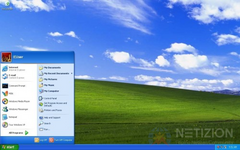Rowell_alab
Certified Netizen
- Jul 25, 2022
- 344
- 30
- 44
- ♂️
- Thread Author
- #1

Windows XP was officially retired in April 2014, but this doesn’t mean everyone gave up on it.
No matter if we’re referring to old computers whose hardware can’t run Windows 10 or enterprises that need to stick with Windows XP due to compatibility reasons, the 2001 operating system still makes its way to market share data released every month.
But the good news is that Windows XP is slowly but surely going dark completely. And this is by all means a good thing.
First of all, let’s see some numbers.
Windows XP currently commands a market share of 1.57%, which makes it the sixth most used desktop operating system worldwide.
While it still has a bigger share than Linux, Windows XP keeps going down every month, and in about one year, it should get closer to 0 percent market share.
At this point, Windows XP mostly runs on computers operated by government agencies, public services, or organizations that need the ancient system just because of old hardware or compatibility reasons. Apps and services developed for Windows XP may not run as expected on newer Windows, and upgrading to a supported release of the operating system very often requires new hardware.
And in its turn, new hardware requires investments, which governments and enterprises can’t afford at such a large scale given the number of devices in their fleet.
But this declining share shows that Windows XP is close to extinction, so sooner or later, Windows 7 should become Microsoft’s big headache (Windows 7 too is losing support in January 2020, and given it still runs on more than 30% of the devices out there, Microsoft will have the difficult mission of convincing customers to upgrade to supported Windows).
As to why the world is better without Windows XP, it’s all because this has become an ancient operating system that does no good when installed on a modern device. From a security perspective, running Windows XP on a computer connected to a larger network or with access to Internet becomes a huge risk, as a substantial number of flaws found in one Windows version affects the others as well.
The difference, however, is that while some get ρá†ches, like Windows 7 and Windows 10, others do not, and this is the case with Windows XP as well. If a vulnerability is discovered in all Windows versions, Windows XP is one of those that do not get a fix, simply because it’s already unsupported.
Users worldwide love Windows XP, and this is mostly because it served as the foundation of the modern Windows experience developed by Microsoft. Windows 7 was the icing on the cake, and this is why I expect the transition off this Windows version to be at least as difficult as in the case of Windows XP.
In fact, killing off Windows 7 could hit another roadblock too.
Windows 7 is the last “traditional” Windows, as its successor, Windows 8, was the first version to introduce the modern experience with Metro apps and touch support. Windows 7 survives mostly because users just want to stick with the familiar desktop that was introduced by Windows XP, and its retirement will basically mark the end of this entire world altogether.
But at the end of the day, the security risk remains. Running an operating system that was launched 18 years ago isn’t by any means something that anyone should do, especially considering that new vulnerabilities are discovered regularly.
The days of Windows XP are long gone, and after 5 years of struggle, it looks like the world is ready to let this OS version die. Any bets on how fast it’s going to reach 0 percent share?